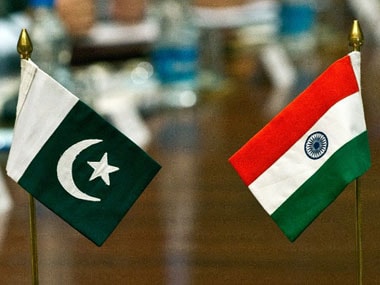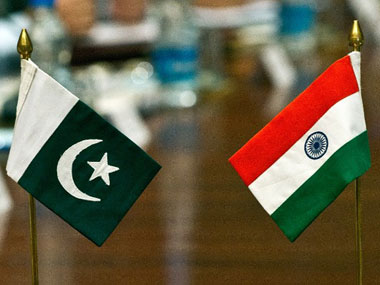by Rana Banerji External Affairs Minister Sushma Swaraj is attending the fifth Heart of Asia deliberations of the ‘Istanbul process’ being hosted by Pakistan at Islamabad on Wednesday and on Thursday, a meeting which India could have not afforded to miss. However, its thunder is likely to be stolen by the possible revival of the long awaited and oft-thwarted bilateral engagement between India and Pakistan on its side-lines. Under the Istanbul process, 14 member countries supported by other major powers are supposed to work for Confidence Building Measures for stability in Afghanistan through political consultations, hopefully providing a regional security umbrella to the process of reconciliation between the legitimately chosen government in Kabul and the Afghan Taliban. [caption id=“attachment_2539128” align=“alignleft” width=“380”]  Representational image. AFP[/caption] The latter have been badly faction ridden ever since the death of Mullah Omar became public in July 2015. What happened at Kuchlak, near Quetta on 2 December is still shrouded in mystery. Apparently, while the Afghan Taliban factions were engaged in peace parleys a fierce gunfight ensued at the house of Mullah Abdul Sarhadi, injuring the new Afghan Taliban Amir ul Mominen, Mullah Mansur Akhtar and several other leaders of a rival faction. Unconfirmed reports surfaced that Mansur had succumbed to his injuries. Sultan Faizy, spokesperson for First Vice President Abdur Rashid Dostum issued a statement about the clash and injuries to Mansur. The office of Dr Abdullah Abdullah, CEO, endorsed this a day later. The Pakistani Urdu channel 24 even mentioned the name of Maulvi Haibatullah Akhund, chosen as interim leader of the Afghan Taliban after the incapacitation of Mansur. Subsequently however, the Xinhua (on 6 December ) came out with an audio message from Mullah Mansur, claiming to be safe and sound. Whatever be the truth that finally emerges, the position of the Pakistan Army and the Inter-Services Intelligence Directorate (ISI), which had manipulated Mullah Mansur’s elevation to the top slot, as also their capacity to deliver concrete results in reconciliation has become quite suspect. If they now fall back on their most reliable proxy – the Haqqani network, who belong to the ‘lowly’ Zadranj tribe – they may annoy ‘higher ranked’ Ishaqzais, Ghilzais and Durranis, constituting bulk of the Quetta Shoora. In this confused backdrop, the focus may understandably shift to the sequel of the rather dramatic Bangkok meeting of 7 December between the National Security Advisors and Foreign Secretaries of India and Pakistan, which apparently discussed the entire gamut of contentious issues, including Kashmir and Terrorism. Pakistan’s Foreign Policy Adviser, Sartaj Aziz has said Pakistan will look for ways and means to institutionalise a further process of engagement. Pakistanis are aware India may not be ready to resume the composite dialogue. India would want to focus much more on the security and terrorism scenario, hoping at least for some impetus to be imparted to the trial of the seven Mumbai 26/11 detainees, including Zakiur Rehman Lakhvi. Pakistan’s Chief Public Prosecutor recently stated that in-camera hearings of all witnesses in the case were drawing to a close. Whether this leads to a verdict incarcerating Lakhvi remains to be seen. Incremental deliverables which could satisfy both sides may include visa liberalisation and even trade but it would be unrealistic to expect substantive progress either in meeting India’s concerns on dismantling of the terror infrastructure or in sorting out the complex Kashmir issue. Pakistan may not agree to the ‘red line’ of not meeting with Hurriyat Conference leaders during future talks in each other’s countries. Nevertheless, if a prospective calendar of contacts on substantive issues can be worked out, it would ease hitherto hostile environs. Constant reciprocal firing on the Line of Control and International Border has taken both sides nowhere. A spell of quiet could provide a better build up to the Prime Minister’s ensuing visit to Pakistan for the SAARC summit early next year. It would also get the monkey of international pressure off our backs for not engaging with a perpetually troublesome and troubled Pakistan.
External Affairs Minister, Sushma Swaraj is finally attending the fifth Heart of Asia deliberations of the ‘Istanbul process’ being hosted by Pakistan at Islamabad on Wednesday and on Thursday, a meeting which India could have not afforded to miss. However, its thunder is likely to be stolen by the possible revival of the long awaited and oft-thwarted bilateral engagement between India and Pakistan on its side-lines.
Advertisement
End of Article
Written by FP Archives
see more


)

)
)
)
)
)
)
)
)



